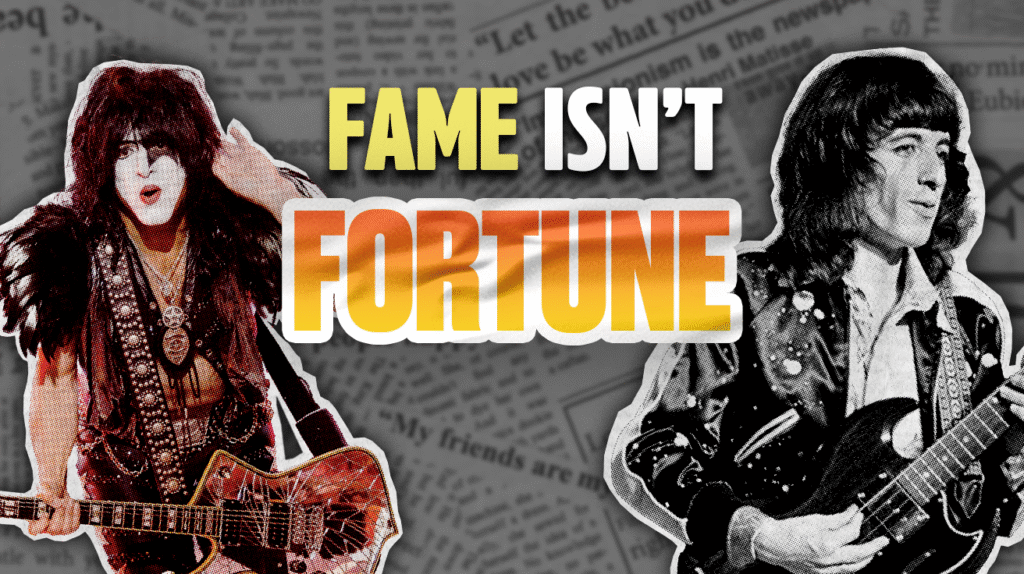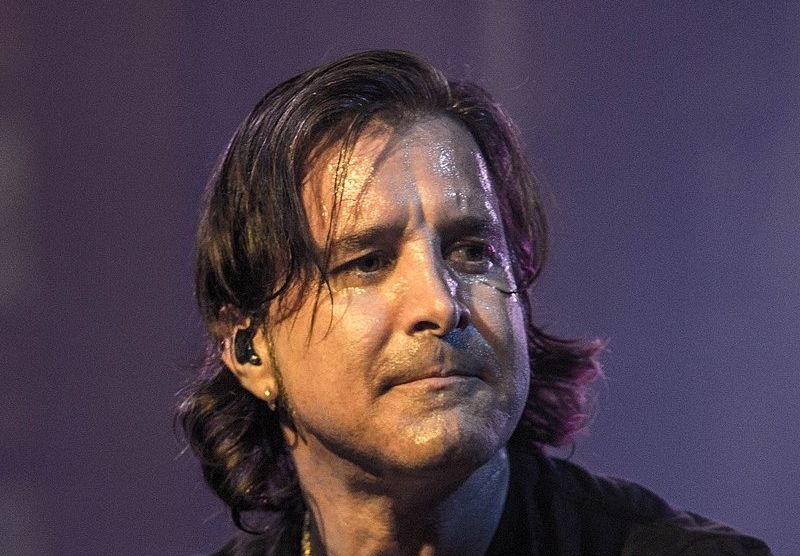
The glittering façade of musical stardom often conceals financial ruin. Many assume that topping charts guarantees financial security, yet success frequently masks a bleaker reality. Behind platinum records and adoring fans lurk tales of bankruptcy, exploitation, and missed opportunities.
Predatory management and exploitative contracts devour countless promising careers. Wealth can vanish like a perfect soufflé collapsing despite remarkable success. This article unmasks the economic struggles that plague even the most celebrated artists. If you’re planning a music career, these cautionary tales might shield your financial future.
11. Scott Stapp (Creed)

Platinum records and sold-out arenas couldn’t protect Scott Stapp from financial collapse. Creed dominated charts, selling over 50 million albums worldwide while collecting Grammy nominations.
Despite solo ventures generating 1 million album sales and Creed’s 2009 reunion, Stapp spiraled into poverty. He slept in his truck while desperately searching for missing royalties.
After previously amassing an estimated $20-30 million at his peak, Stapp resorted to crowdfunding $480,000. By 2025, his wealth had withered to approximately $1 million. Protecting musical earnings demands financial advisors who bring as much expertise as producers bring to the studio.
10. Ace Frehley (Kiss)

Kiss guitarist Ace Frehley’s financial implosion contradicts his legendary status. His iconic playing powered albums selling over 100 million copies globally, while reunion tours poured $18 million into his accounts during the late 90s.
Disaster struck anyway. Lenders seized his home in 2013 after he paid a mere $35,000 toward the $735,000 property. Tax obligations ballooned to $20,000.
IRS debts exceeding $50,000 cost Frehley his passport by 2024, preventing international promotion of his album “10,000 Volts.” Without proper tax planning, even guitar legends watch their global careers stall completely.
9. Sly Stone (Sly and the Family Stone)

Musical revolutionaries aren’t immune to destitution—Sly Stone proves this brutal truth. After transforming the late 60s sound and earning a Grammy for Lifetime Achievement. Stone ended up homeless even though he performed at the great Coachella. His groundbreaking band moved approximately 8 million albums.
Stone inhabited a van by 2011—a stark contrast to his vineyard estate just four years prior. Courts initially awarded him $5 million in royalties in 2015.
The verdict collapsed when documents revealed he’d signed away rights in 1989, leaving him with just 50% ownership in a production company and highlighting music industry exploitation at its worst. Protecting your rights through legal scrutiny might preserve millions—a lesson Stone learned too late.
8. Sigur Rós

Tax authorities hammered acclaimed Icelandic band Sigur Rós during a grueling three-year ordeal. Officials alleged evasion totaling 151 million krona (approximately $1 million) and seized multiple properties.
The band pointed to accounting errors. Though they secured vindication in 2021, investigators shifted focus to frontman Jónsi until finally dropping all charges in 2023.
Their struggle illustrates how financial oversight mistakes can derail even critically acclaimed artists. Musicians crossing borders need specialized tax expertise as much as they need instruments.
7. Leif Garrett

Teenage heartthrob Leif Garrett tumbled from magazine covers to bankruptcy courts at breathtaking speed. His star blazed from 1977 to 1979 before substance abuse and rehabilitation stints derailed his trajectory.
Financial collapse followed in 2001. Unable to cover even a modest $76,000 debt, his income shriveled to a mere $1,000 monthly allowance.
His worth plunged to approximately $10,000 by 2025, demonstrating fortune’s swift abandonment of former idols. Establishing solid financial habits early illuminates paths through fame’s unpredictable journey.
6. Toni Braxton

Seven Grammy Awards couldn’t shield Toni Braxton from financial devastation. Her career launched in 1992, quickly generating $170 million for her label while she pocketed just $1,972 in royalties.
Predatory contracts created this staggering disparity. Bankruptcy followed in both 1998 and 2010. She surrendered her Nevada home before foreclosure threatened her Georgia mansion in 2012.
More favorable contracts might have crafted financial success matching her vocal achievements. Her cautionary tale illuminates how talent alone cannot overcome exploitative business practices.
5. Toto

Grammy-winning band Toto battled their label while watching their empire crumble. Their catalog moved over 14 million albums worldwide, with Toto IV capturing the coveted Album of the Year Grammy in 1982.
The band fractured in 2008 before suing Sony for $65,000 in damages. Courts ruled against them in 2014, amplifying their financial strain.
Mounting debts forced them back into studios and onto tours against their wishes. Today’s musicians must understand royalty structures thoroughly to distinguish between financial independence and forced comebacks.
4. Tommy James (Tommy James and the Shondells)

Mob-connected label executive Morris Levy robbed Tommy James of between $30 million and $40 million in royalties after signing him to Roulette Records in 1966.
Levy threatened James during financial audits. Before his 1990 death, Levy sold Roulette to Warner Brothers, leaving James with mere fragments of his rightful earnings.
Proper contract terms transform industry relationships just as quality ingredients elevate simple recipes. Entertainment law professors still reference James’s exploitation as the quintessential cautionary example.
3. Randy Travis

Catastrophic illness shattered country star Randy Travis’s empire overnight. Cardiomyopathy triggered heart failure and a devastating stroke in 2013, necessitating brain surgery and two years of intensive rehabilitation.
Despite selling 23 million albums, Travis lacked disability insurance. His royalty stream vanished under the weight of outstanding advances and loans.
Health emergencies can devastate even successful artists without proper financial protection. Securing your financial future demands the same attention musicians give to their craft.
2. Ryan Adams

Allegations of misconduct incinerated Ryan Adams’s career and financial stability simultaneously. Multiple women accused him of abuse in 2019, prompting Blue Note Capital to terminate his contract and shelve three completed albums.
Promoters canceled tours, and by 2021, the 46-year-old faced total collapse, losing his label, studio, and home in rapid succession.
In entertainment, reputation functions as your most valuable asset. Protecting it requires the same vigilance musicians apply to their recordings.
1. Bill Wyman (The Rolling Stones)

Despite the Rolling Stones’ mammoth commercial success, the bassist revealed he and several bandmates remained virtually penniless despite worldwide fame.
While Stones albums sold millions globally, management practices and contract structures siphoned potential earnings. Individual musicians received a fraction of what their success suggested.
Even rock legends sometimes perform for survival rather than wealth. Wyman’s candid admission proves fame offers no guarantee of financial security when entangled in music business machinery.





















